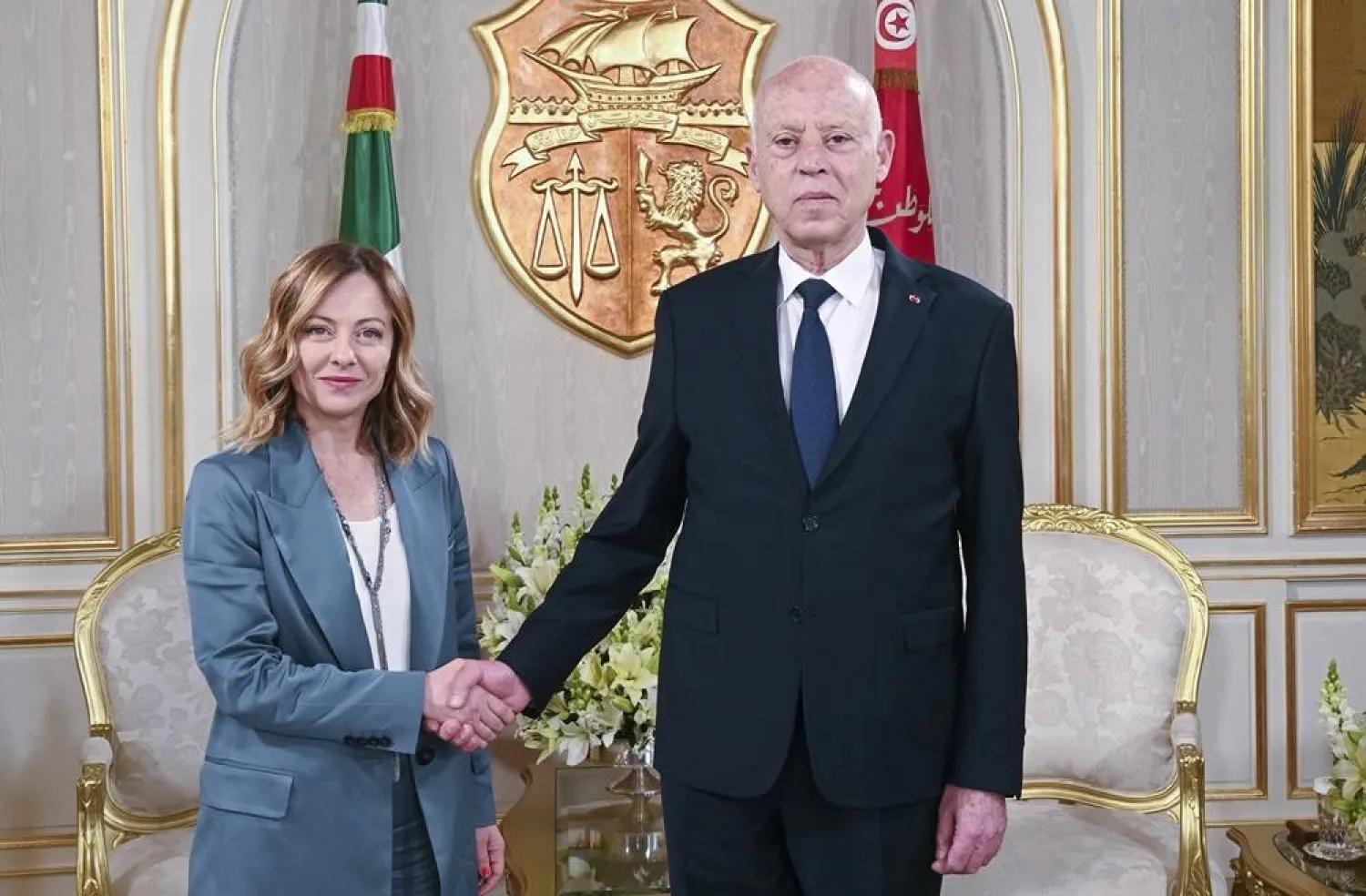The head of Italy's right-wing government acknowledged Wednesday that Tunisia cannot serve as a dumping ground for migrants, days after Tunisia's president reaffirmed his unwillingness to let Europe outsource migration problems by sending those not welcome there to his country.
Italian Premier Giorgia Meloni said during a visit to Tunisia — her fourth in the past year — that the North African nation “cannot become the arrival point for migrants coming from the rest of Europe.”
However, she sidestepped tensions over how to manage migration via the Mediterranean Sea and instead praised Tunisia and Italy's shared priorities in fighting human traffickers and repatriating African migrants back to their home countries.
Meloni and Tunisian President Kais Saied signed new accords as part of Italy's “Mattei Plan” for Africa, a continent-wide strategy aimed at growing economic opportunities and preventing migration to Europe.
They included education initiatives and 50 million euros (about $53 million) in a budgetary aid package earmarked for renewable energy projects. Meloni also promised to expand efforts to repatriate migrants to their home countries and expand legal migration pathways for Tunisians to work in Italy.
“It is essential that we work together to continue to fight the slavers of the third millennium, the mafia organizations that exploit the legitimate aspirations of those who would like a better life,” Meloni said, referring to smugglers who facilitate migrants' perilous sea journeys.
European leaders often frame migration as a human trafficking issue, though migrants are known to make the trip in various ways and for a variety of reasons.
Nearly 16,000 migrants have made the treacherous journey from North Africa to Italy so far in 2024, travelling thousands of kilometers (miles) from Algeria, Tunisia and Libya, mainly to islands off the Italian mainland. Arrivals tend to increase through spring and summer.
As weather warmed early this year, more migrants arrived with each passing month — a trend that's on track to maintain its pace through April.
Less than half as many migrants had arrived in Italy as of April 15, compared to the same period in 2023, according to figures from the UN refugee agency. That’s in part because of Tunisia's border patrol force, which this year intercepted about 21,000 migrants before they crossed into European waters.
Despite the interceptions, Saied has long insisted he is unwilling to let his country become Europe's “border guard” or accept migrants that Europe wants to deport.
Earlier this week, he said he had no intention of opening detention centers for migrants in an agreement similar to Italy's deal with Albania on asylum seekers. “We will not accept the presence of people outside the law, and Tunisia will not be a victim," Saied said.
North African countries, from Morocco to Egypt, enjoy some leverage in their relations with Europe due to their role in helping control the flow of migrants. Italy and its European Union counterparts have pledged substantial financial support to countries on the other side of the Mediterranean to help prevent migration and trafficking.
But most of the more than 1 billion euros ($1.1 billion) promised to Tunisia as part of an EU agreement brokered in July is contingent on the country reaching an agreement with the International Monetary Fund on a stalled bailout package that could require painful spending cuts.
The broader EU package includes 105 million euros ($112 million) earmarked for migration. Romdhane Ben Amor, a spokesperson for the Tunisian Forum for Economic and Social Rights, which closely follows the migration assistance, said much of it has yet to be disbursed.









